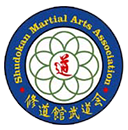Practice Does Not Necessarily Make Perfect
By Muromoto, WayneThis article first appeared in the "SMAA Journal" Volume 24, Issue 2.
What do you think of the phrase “practice makes perfect?”
How confident are you in your martial arts skills?
In all traditional Asian combative arts, there is a strong emphasis on reaching a particular expertise in the repetition of proper form, none, perhaps, more so than in iai. Since iai proper does not have competitive matches (although lately they have instituted a kind of forms competition in some organizations in Japan) that pit one person against another, the only way to evaluate expertise in iai is through perfection of form.
There may be variations from one dojo to another, and one teacher to another in the same school, but there are some basic signposts that declare that you either “get it” or you don’t: your timing, perhaps, or the way you move, handle the sword, the angle of your chiburi, or angle of the cut with the sword. This is one step beyond simply repeating the steps or procedure. This is polishing the steps and instilling in them the particular way you move with the sword in hand.
When you begin to “get it,” your sword work begins to assume an actual personality: that of your own, of course, but also that of the ryu you are performing. That balance, that tension between individual character and the characteristics of the ryu is the hardest to attain as beginners. When you start with iai, everything may seem random and arbitrary. If you progress, however, and you observe other ryu, you should come to a realization that there are implicit reasons why you do things a certain way, and why another ryu does things a different way.
You may want to slouch and hunch your shoulders because all your life that’s how you’ve stood. Or your body wants to use your shoulder and arm strength instead of your hip muscles. You have to consciously, mentally, force yourself to make the corrections. The other part is you also have to make the connection with your own body, forcing it to move that way too when you perform the kata. Again, there may be long-standing habits in your body that you have to break.
You have to see what is being done, internalize the concept in your mind, but you then have to transmit that movement to your body. A lot can mess things up in this two-step process.
Koryu study is basically this: you break down bad habits and try to institute new ones, hopefully better ones. It takes years of training, but training without thinking or self-correction produces no improvement. You are simply reinforcing bad habits and making them harder to break. I think it was football coaching legend Vince Lombardi who said something like, “Practice does not make perfect. Only perfect practice makes perfect.”
What he meant was, even if you put in time and effort in training, if you are training the wrong way, you aren’t really getting any better, you’re only getting better at doing something badly.
Even the best teachers I know are never satisfied. Of their own kata, they would say, “Mada, mada.” (“Not yet, not yet.”) They were constantly polishing their skills. These were men and women who were superb in their arts, yet they were never satisfied. And that dissatisfaction was what, perhaps, caused them to excel as far as they did.
Finally, going back to your mental approach: You also need the ability to self-evaluate. That means you have to see clearly whether or not you are doing things right for yourself. You need to tame your body and ego so that they do not get in the way of a truthful, honest feedback.
A teacher may guide you along the way, but a teacher can’t carry you to the end. He or she is only a guide, who points the way. It’s really up to you to walk that road and get to your destination yourself. The really hard work has to be done by you, as in other aspects of your life.
Work Towards Perfection at a Japanese Karate Association
Looking for a martial arts community?
SMAA is a Japanese karate association that also offers aikido, iaido, judo, and jujutsu. To get started, call (734) 720-0330 or submit a contact form here. If you need a second opinion, check our Google reviews!

